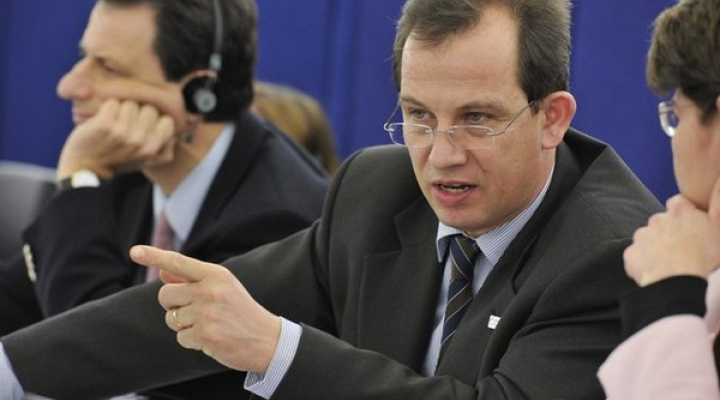The EU2020 strategy needs to serve the development of the entire EU
The program of the Polish Presidency of the Council of the European Union and the analysis of the financial, economic and social crisis, as well as the outlining of necessary measures and initiatives were some of the main subjects of debates at the plenary session of the European Parliament on the 6th of July.
After hearing out the speaker on behalf of the European Commission and the Council, MEPs formulated their expectancies with regard to the Polish Presidency’s planned activities. DAHR’s MEP contributed his point of view in writing:
„I congratulate you, Mr Tusk, on the domestic results you have achieved despite the economic crisis, and also on the pragmatic and optimistic speech you have just delivered. You mentioned the past, the knowledge of which is essential for thinking in perspectives. Throughout its history, as well as during the current economic crisis, Poland has often provided examples of how to take control of difficult situations. As a Hungarian from Transylvania, I would like to emphasize the role of our common ruler, István Báthory, in stabilizing the region. It was a pleasure to read amongst the Polish priorities that you intend to continue the enlargement process in an ‘open European spirit’, that you would like to help complete the democratic transition of the North African states, that you emphasize the acceleration of economic growth, and attribute importance to securing basic rights and protecting minorities as well as to the facilitation of the free movement of persons. I am convinced that Europe must show this open side, as opposed to the inward and dismissive one that fearfully peeks out from behind the Schengen borders. As a member of an ethnic minority yourself, you must not forget about Poles in Lithuania or other European minorities. Good luck to Poland with achieving the tasks of the Presidency.”
The rapporteur for the analysis of the financial, economic and social crisis, as well as the outlining of necessary measures and initiatives, French socialist MEP Pervenche Berès is also the president of the Special Committee for the Financial, Economic and Social Crisis. In her speech she stated that the 20 month long mandate of the committee ended successfully, they managed to formulate clear goals even though the crisis is not yet over. The economic governance package is at a halt, the practices of the financial markets remain unchanged, the fate of the member states depends on their qualifications – she enumerated the deficiencies.
The report of the special committee entitled More Europe! calls for audit of public debts, EU level taxation of financial transactions, the establishment of an EU treasury and the appointment of an EU financial minister. Member states also need to invest into education and training, while the energetic community and other businesses need to be managed responsibly.
DAHR’s MEP Csaba Sógor expressed his views using the method of vote explanation. In his remarks, he urged measures that aid the cohesion of new member states. Here follows his speech:
„Madam President, the report from the Special Committee on the Financial, Economic and Social Crisis emphasizes that both agricultural and cohesion policy must play a key role in the Europe 2020 strategy. The common agricultural policy reform must be planned while taking into account the need to meet global challenges, while the cohesion policy must be planned with clear objectives aimed at promoting competitiveness. In the majority of new Member States, agricultural producers are counting on the current system of the common agricultural policy, while from the cohesion policy they expect the realization of basic infrastructure investments, as in this area we fall well behind the old Member States. The EU 2020 strategy must serve the development of the entire European Union and this is impossible without developing backward regions and keeping the original objectives of the agricultural and cohesion policies.”











